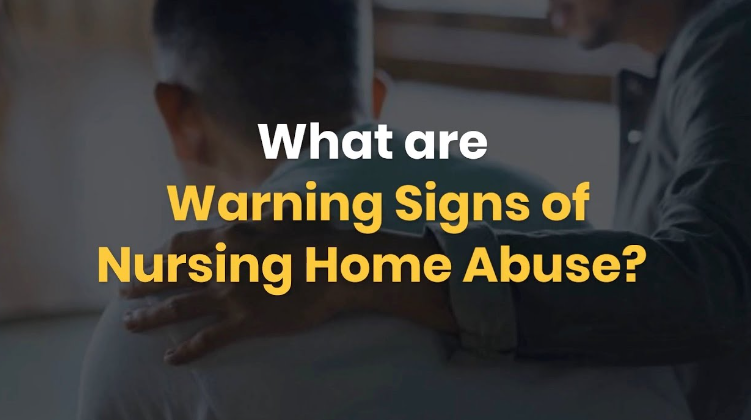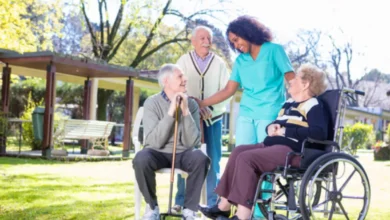Uncovering the Unthinkable: How to Spot Nursing Home Abuse

In a society where elder care is progressively shifting from familial to institutional, the rise of nursing home abuse is a pressing concern. For caregivers, the possibility of a loved one suffering in silence at the hands of their caregivers is a nightmare that many don’t have the tools to address.
In this article, we will explore the signs of nursing home abuse, how to report it, and what steps can be taken to prevent it.
Contents
The Silent Epidemic
The topic of nursing home abuse stirs deep anxiety and fear, yet it’s essential to recognize that it’s increasingly common. It encompasses physical harm, but also psychological trauma and financial exploitation. With an aging population, the number of individuals living in nursing homes is on the rise, making awareness of abuse more critical than ever.
Understanding the Different Forms of Abuse
Nursing home abuse is not monolithic. It appears in various forms, each with its devastating impact. Here’s a breakdown:
Physical Abuse
This form is the most apparent, involving the use of force that results in injury, physical discomfort, or impairment. It could include hitting, pushing, or inappropriate restraint.
Emotional or Psychological Abuse
This is often the most insidious form of abuse, as it can be subtle and easily overlooked. It involves behaviors that cause emotional pain or distress, including intimidation, humiliation, or even isolating the resident from their friends and family.
Financial Exploitation
In this form of abuse, caregivers use the senior’s funds, property, or assets without permission or under duress. Trafficking a resident’s funds, identity theft, or coercing them to sign over financial control are examples of this.
Neglect
A lack of proper care, attention, or services constitutes neglect. This could mean withholding food, water, or medical care, and it can lead to grave consequences for the resident’s health and well-being.
Sexual Abuse
This is any form of unwanted sexual conduct, and it’s a violation with severe physical and emotional repercussions for the victim.
Health Care Fraud
Care providers charge for unnecessary services, overcharge for services, or bill for services not provided — a subtle but significant form of abuse often tied to financial exploitation.
By recognizing the various forms, caregivers can be better prepared to identify and respond to concerning behavior.
Warning Signs to Look Out For
Spotting nursing home abuse can be challenging, given that the victims often face communication barriers or cognitive impairments. Family caregivers are often the lifeline to identifying these red flags:
Physical Signs
Unexplained injuries like bruises, burns, or abrasions are causes for concern. Similarly, drug overdosing or underdosing could be a sign of inadequate care.
Emotional Clues
Sudden changes in mood or behavior, such as withdrawal or acting unusually fearful, could indicate emotional or psychological abuse.
Financial Irregularities
Unexplained withdrawals or changes in financial situations without the resident’s knowledge or consent signal potential financial exploitation.
Hygiene and Environment
Poor hygiene, malnutrition, or unsafe living conditions are oftentimes clear indications of neglect.
Unexplained Health Problems
Any rapid or unexplained changes in the resident’s health status should be investigated, as they could be linked to abuse.
By remaining vigilant and regularly visiting the resident, caregivers can pick up on these signals and act accordingly.
Taking Action If You Suspect Abuse
Discovering abuse is a heart-wrenching moment, but swift and assertive action is crucial. Here are the steps you need to take:
Ensure the Resident’s Safety
Immediate removal from the abusive situation is the first step. This may involve transferring the resident to a different living facility or taking them home if possible.
Document Evidence
Gather as much documentation as possible, including photographs of any injuries, medical records, and any testimony from the resident or their peers.
Report the Abuse
It’s paramount to report the abuse to the appropriate authorities, which may include Adult Protective Services, local law enforcement, and the ombudsman for nursing homes.
Seek Legal Support
Consult with an attorney in Columbus experienced in nursing home abuse or elder law to understand the legal options available and to pursue justice for the victim.
Action not only ensures the well-being of the abused but also prevents future harm to other residents.
Preventative Measures
Preventing nursing home abuse involves actively engaging in the well-being of the resident.
Stay Involved
Regular visits and communication with the resident are powerful preventive measures. Building relationships with staff and other residents can facilitate the free flow of information.
Educate on Rights
The elderly have rights, and they need to know it. Educate the resident on their rights and encourage them to speak up if they feel mistreated.
Monitor Financials
Keep a close eye on the resident’s finances and report any irregularities immediately. Regular audits can also help identify patterns of abuse.
Act on Suspicion
Trust your instincts. If something feels wrong, investigate it. Follow through on any suspicion, no matter how small it may seem.
By being proactive, caregivers can take significant steps to lessen the likelihood of abuse.
Conclusion
Every nursing home should be a place of safety, comfort, and dignity. Unfortunately, abuse in these facilities is a harsh reality for many seniors. By understanding the different forms of abuse, recognizing warning signs, taking necessary action if abuse is suspected, and implementing preventative measures, caregivers can help protect their loved ones from harm. It’s crucial to remain vigilant and advocate for the well-being of our seniors in nursing homes. So, always stay involved and speak up if you suspect abuse. Together, we can create a safer environment for our loved ones in their golden years.



